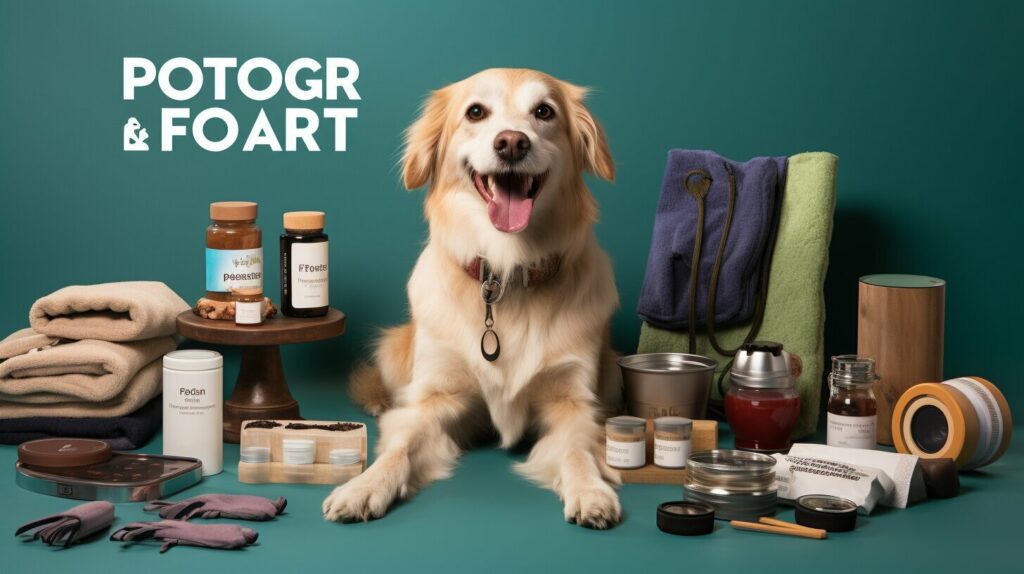If you’re a dog owner, it’s important to understand the impact worms can have on your pet’s health. Dogs with worms can experience a range of symptoms, from weight loss to diarrhea, and in severe cases, worms can be life-threatening. In this guide, we’ll discuss the types of worms that can affect dogs, their symptoms, and the available treatment options.
Key Takeaways:
- Dogs with worms can experience a range of symptoms, from weight loss to diarrhea.
- There are several types of worms that can affect dogs, including roundworms, hookworms, tapeworms, and whipworms.
- Proper diagnosis and treatment are important to prevent the spread of worms and protect your dog’s health.
Common Types of Worms in Dogs
As a responsible dog owner, it’s important to understand the different types of worms that can affect your furry friend. Here are some of the most common worms that can infest dogs:
| Worm Type | Description | Symptoms |
|---|---|---|
| Roundworms | Long, spaghetti-like worms that live in the small intestine | Diarrhea, vomiting, weight loss, pot-bellied appearance, coughing |
| Hookworms | Small, blood-sucking worms that live in the small intestine | Diarrhea, anemia, weakness, weight loss |
| Tapeworms | Flat, segmented worms that live in the small intestine | Abdominal pain, diarrhea, anal itching, visible worms in feces |
| Whipworms | Thin, whip-like worms that live in the large intestine | Diarrhea, weight loss, anemia |
These worms can be contracted in a variety of ways, including through contact with contaminated soil or feces, ingestion of infected animals or insects, and from infected mothers to their puppies. Knowing the symptoms associated with each type of worm can help you identify and address the problem early on.
Common Types of Worms in Dogs: Conclusion
It’s essential to have a basic understanding of the different types of worms that can infest dogs and the related symptoms to watch out for. By being vigilant and taking steps to prevent and treat worms, you can help ensure your furry friend’s optimal health and well-being.
Signs and Symptoms of Worms in Dogs
As a responsible dog owner, it’s essential to be aware of the signs and symptoms of worms in dogs. Parasitic worms can cause serious health problems and discomfort for your furry friend, and early detection and treatment are essential for their overall health and wellbeing.
Some of the most common signs of worms in dogs include:
- Weight loss or a decreased appetite
- Diarrhea or loose stools
- Vomiting or regurgitation
- Anemia or pale gums
- A dull coat or dry skin
- Coughing or wheezing
- Bloody or mucous stools
- Visible worms or worm segments in the stool or around the anus
The symptoms can vary depending on the type of worms your dog has and the severity of the infestation. For example, hookworms can cause anemia and bloody diarrhea, while roundworms can lead to a potbelly and vomiting.
If you notice any of these signs in your dog, it’s crucial to seek veterinary attention promptly. Your veterinarian can perform a fecal examination or other diagnostic tests to determine if your dog has worms and the appropriate treatment needed.
Diagnosing Worms in Dogs
If you suspect your dog has worms, taking them to the vet for a proper diagnosis is the first step to effective treatment. A veterinarian will perform a physical exam and may request a stool sample to identify the type of worm present.
Some common symptoms of dogs with worms include vomiting, diarrhea, coughing, weight loss, and a dull coat. However, not all dogs with worms will show symptoms, making routine fecal examinations an essential part of their health care.
Your vet may also conduct blood tests or imaging studies, such as X-rays or ultrasounds, to evaluate the severity of the infestation and identify any complications that may have arisen.
It’s essential to note that diagnosing worms in dogs can be more challenging than it seems. Some worms, such as tapeworms, may require the identification of tapeworm segments in the stool, which are not always visible to the naked eye.
Therefore, if you suspect your dog has worms, it’s always best to seek the advice of a professional veterinarian instead of attempting to self-diagnose or self-treat.
Treatment Options for Dogs with Worms
When it comes to treating worms in your dog, there are several options available. Your veterinarian will work with you to determine the best course of action based on your dog’s specific needs and the type of worms they have. Here are some of the most common treatment options for worms in dogs:
Medications
One of the most common treatments for worms in dogs is medication. There are a variety of medications available, including dewormers that specifically target certain types of worms. Your veterinarian may prescribe one or more of these medications depending on your dog’s needs.
It’s important to note that some over-the-counter medications may not be effective in treating all types of worms, and may even be harmful to your dog. Always consult with your veterinarian before giving your dog any medication.
Natural Remedies
In addition to traditional medications, there are also natural remedies that can help treat worms in dogs. Some pet owners prefer to try natural remedies before turning to prescription medication.
Some natural remedies that may help eliminate worms in dogs include herbs such as garlic and pumpkin seeds, which have natural anti-parasitic properties. Probiotics and digestive enzymes may also help support your dog’s digestive system and improve their overall health.
Again, it’s important to consult with your veterinarian before using any natural remedies to treat worms in your dog.
Prevention
Preventing worms in your dog is always the best course of action. There are several things you can do to help prevent worms, such as:
- Maintaining a clean living environment
- Keeping your pet’s bedding and toys clean
- Following a regular deworming schedule as recommended by your veterinarian
- Practicing proper hygiene, such as washing your hands after handling your dog’s waste
By following these prevention strategies and working closely with your veterinarian, you can help ensure your dog stays happy and healthy, free from worms and other parasites.
Preventing Worms in Dogs
As a responsible dog owner, it’s important to take preventative measures to reduce the risk of your furry friend getting worms. By following these tips, you can help keep your dog healthy and worm-free:
- Maintain a clean living environment: Regularly cleaning your dog’s living space, including their bedding, toys, and food dishes, can help prevent a buildup of worms.
- Practice good hygiene: Washing your hands after handling your dog and picking up their feces can minimize the risk of spreading and contracting worms.
- Regular deworming: Following a regular deworming schedule, as recommended by your veterinarian, can prevent worms from taking hold in your dog’s system.
- Control flea and tick infestations: Fleas and ticks can transmit worms to dogs, so using a flea and tick preventative can help reduce the risk of your dog getting infected.
- Avoid contact with other dogs’ feces: Encouraging your dog to avoid sniffing or eating other dogs’ feces can help prevent the spread of worms.
By implementing these preventative strategies, you can help keep your dog healthy and parasite-free. If you suspect your dog has worms, consult with a veterinarian for proper diagnosis and treatment.
Deworming Schedule for Dogs
Regular deworming is an essential part of maintaining your dog’s health. The frequency of deworming treatments may depend on various factors, such as your dog’s age, lifestyle, and overall health. It’s important to follow a veterinarian’s guidance when establishing a deworming schedule for your dog.
Here are some general guidelines for deworming dogs at different life stages:
| Dog’s Life Stage | Deworming Schedule |
|---|---|
| Puppies (up to 6 months) | Deworm every 2-3 weeks |
| Adult Dogs | Deworm every 3-6 months |
| Senior Dogs (over 7 years) | Deworm every 3-6 months or as recommended by a veterinarian |
It’s important to note that these are general guidelines and may vary depending on your dog’s individual needs and circumstances. Your veterinarian may recommend a different schedule based on your dog’s lifestyle, potential exposure to parasites, and other factors.
Remember that prevention is key when it comes to worms in dogs. In addition to regular deworming, it’s important to practice good hygiene and cleanliness in your home and yard. Keep your dog away from feces and contaminated soil, and pick up after your dog regularly. Talk to your veterinarian about the best ways to prevent worms in your dog.
Natural Remedies for Worms in Dogs
If you’re looking for natural remedies to help eliminate worms in your dog, there are several options available. While it’s important to consult with a veterinarian for proper diagnosis and treatment, natural remedies can be used in conjunction with traditional treatments to help support your dog’s immune system and promote overall health. Here are a few natural remedies that may be effective in controlling worm infestations:
1. Diatomaceous Earth
Diatomaceous earth is a natural powder made from the fossilized remains of diatoms. It can be sprinkled on your dog’s food or added to their water to help eliminate worms and other parasites. Diatomaceous earth works by dehydrating and drying out the parasites, causing them to die off.
2. Herbal Supplements
There are several herbal supplements that can help support your dog’s immune system and promote overall health. Garlic, for example, has natural anti-parasitic properties and can help eliminate worms. Pumpkin seeds are also effective at controlling worm infestations, as they contain an amino acid that paralyzes the worms, making it easier for your dog to pass them through their stool.
3. Probiotics
Probiotics are live bacteria and yeasts that are good for your dog’s gut health. They can help promote healthy digestion and support your dog’s immune system. Probiotics can also help eliminate and prevent worm infestations by creating an environment in the gut that is less hospitable to parasites.
It’s important to note that while natural remedies can be effective in controlling worm infestations, they should be used in conjunction with traditional veterinary treatments. Consult with your veterinarian to determine the best course of action for your dog’s individual needs.
Conclusion
Understanding dogs with worms is crucial for maintaining the health and well-being of your furry friend. By recognizing the signs and symptoms of worms, you can take the appropriate measures to prevent and treat infestations. Consulting with a veterinarian is essential for accurate diagnosis and treatment. Remember to keep your dog’s living environment clean and follow a regular deworming schedule to prevent future outbreaks.
Take Action for Your Dog’s Health
If you suspect your dog has worms, don’t delay in seeking veterinary care. With proper diagnosis and treatment, your dog can recover and regain their vitality. Remember that even if your dog isn’t showing symptoms, routine fecal examinations and deworming treatments are essential for preventing the spread of worms. Take action today to ensure your dog stays healthy and happy for years to come.
Thank you for taking the time to read this guide to canine health. We hope you found it informative and helpful for caring for your dog. Keep your furry friend’s tail wagging by staying informed and taking preventative measures against worms.
FAQ
Q: What are the common types of worms that can affect dogs?
A: The common types of worms that can affect dogs include roundworms, hookworms, tapeworms, and whipworms.
Q: What are the signs and symptoms of worms in dogs?
A: Signs and symptoms of worms in dogs may include weight loss, diarrhea, vomiting, and a dull coat.
Q: How can worms in dogs be diagnosed?
A: Worms in dogs can be diagnosed through routine fecal examinations and other tests performed by veterinarians.
Q: What are the treatment options for dogs with worms?
A: Treatment options for dogs with worms include deworming medications prescribed by veterinarians and natural remedies that can help eliminate worms.
Q: How can worms in dogs be prevented?
A: Worms in dogs can be prevented through maintaining a clean living environment, regular deworming schedules, and proper hygiene practices. Flea and tick prevention also plays a role in reducing the risk of worms.
Q: What is the recommended deworming schedule for dogs?
A: The recommended deworming schedule for dogs varies depending on their life stages. It is important to follow a veterinarian’s guidance and address the different protocols for puppies, adult dogs, and senior dogs.
Q: Are there natural remedies for worms in dogs?
A: Yes, there are natural remedies and alternative treatments that can help eliminate worms in dogs. These may include herbal supplements, dietary modifications, and home remedies that support a dog’s immune system and help control worm infestations.



